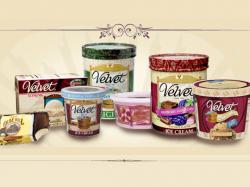Velvet Ice Cream Adds Distribution Center In Indiana
February 24, 2010 | 1 min to read

UTICA — The Utica-based Velvet Ice Cream Co. opened a distribution center in
Fort Wayne, Ind., the company announced Tuesday.
Velvet Ice Cream, which already had a distribution center in Indianapolis,
expanded its operation to increase the company’s presence in northeast Indiana.
“We’re looking to recommit our efforts to the Fort Wayne area,” Velvet President
Luconda Dager said. “We’ve had a presence in Fort Wayne for 25 years, but having
a dedicated distribution center will enable us to increase our brand awareness.”
Among locations selling Velvet in the Fort Wayne area are Scott Foods, Kroger
and Walgreens. Velvet also is a sponsor of the Fort Wayne TinCaps minor league
baseball team.
To read the rest of this story please go to:
The
Newark Advocate
